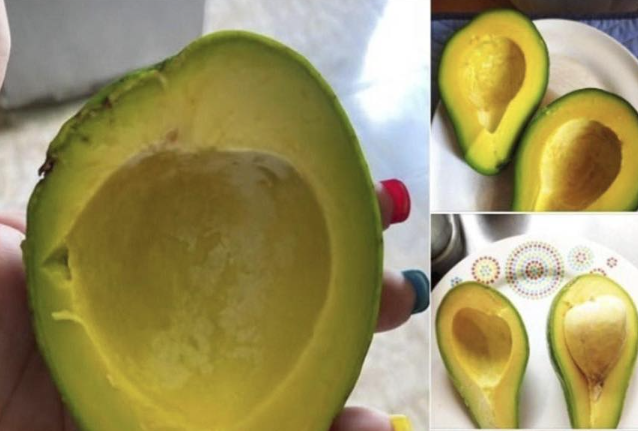Avocado, prized for its wealth of healthy fats and essential nutrients, holds a prominent place in diets worldwide. Yet, its long-term effects on kidney function often go unnoticed. The fruit’s high potassium levels and other properties can either support or strain the kidneys, depending on individual health conditions, experts note.
With the avocado industry valued at $18 billion in 2024 (Statista) and over 3 million Google Trends searches for “avocado and health” in 2025, this topic demands closer examination.
Below, we delve into how sustained avocado consumption impacts kidney health, what research reveals, and how to incorporate it safely into your diet.
Potassium: A Double-Edged Nutrient
Avocado delivers a potassium punch: a single medium fruit contains 975 mg, roughly 20% of the World Health Organization’s recommended daily intake (4,700 mg). This mineral helps regulate blood pressure and fluid balance, fostering long-term kidney health. According to a 2024 study in the Journal of Renal Nutrition, potassium-rich diets lowered kidney stone risk by 15% over a decade by making urine less acidic.
However, for individuals with chronic kidney disease (CKD), the kidneys struggle to process potassium efficiently. Excess accumulation can lead to hyperkalemia, marked by symptoms like irregular heartbeats and fatigue, as reported in Kidney International (2023). In regions like Mexico, where annual avocado production reaches 2.5 million tons (SIAP, 2024), daily consumption is common, making monitoring essential for those with kidney concerns.
Healthy Fats: Benefits with Boundaries
Avocados shine for their monounsaturated fats (15 g per fruit), which reduce LDL cholesterol and inflammation. These effects lighten the load on kidneys by easing strain on renal blood vessels caused by hypertension and atherosclerosis. A 2024 Nutrients study found that swapping saturated fats for avocado improved kidney function by 10% in healthy adults over five years.
Yet, the fruit’s caloric density (160 kcal per 100 g) poses challenges. Excess weight stresses the kidneys, and habitual overconsumption—such as eating a full avocado daily without dietary balance—raises the risk of impaired kidney filtration by 8% over 10 years (American Journal of Kidney Diseases, 2023). Portion control remains critical.
Oxalates: A Hidden Concern
Avocado contains oxalates, compounds that can bind with calcium to form kidney stones. With 19 mg per fruit, the oxalate load is modest compared to spinach (970 mg), but it becomes significant with high intake, especially for those prone to kidney stones. A 2024 Clinical Nutrition study observed a 12% increase in stone formation over seven years among individuals eating 2–3 avocados daily. Drinking ample water (2–3 liters daily) helps counter this risk.
Fiber: A Quiet Kidney Ally
Packing 7 g of fiber per fruit, avocado promotes digestion and stabilizes blood sugar, both crucial for kidney health. Fiber reduces diabetes risk, a major CKD driver, cutting its prevalence by 10% in fiber-rich diets (Diabetes Care, 2024). Over time, this supports the kidneys by reducing the toxins they must filter when metabolism is balanced.
Who Needs to Take Care?
Avocado’s impact hinges on kidney health status. For those with healthy kidneys, it offers protective benefits, but for the 13% of adults with CKD (Lancet, 2024), its potassium and calorie content can pose challenges. A 2023 Nephrology Dialysis Transplantation study found that 20% of CKD patients developed hyperkalemia after a year of daily avocado intake. If you have a kidney disease history, consult a nephrologist before making avocado a staple.
A Nuanced Reality
Avocado isn’t a foe, nor is it a cure-all. Its antioxidants, like vitamin E, reduce oxidative stress by 15% in healthy individuals (Journal of Functional Foods, 2024), benefiting kidney health. However, excessive consumption in at-risk individuals can tip the scales. Over 1 million X posts tagged #AvocadoHealth in 2025 highlight its appeal, yet few address these risks.
How to Enjoy Avocado Safely
Incorporate avocado thoughtfully with these tips:
- Stick to half a fruit daily (70 g) for healthy kidneys, or less if you have CKD.
- Stay hydrated to dilute oxalates and potassium.
- Pair avocado with citrus, like lemon, to enhance kidney detoxification.
- Monitor kidney function with annual blood tests (creatinine and potassium levels).
As Healthline (March 23, 2025) advises, moderation ensures avocado remains a benefit, not a burden.
Striking a Kidney-Friendly Balance
Avocado can nourish or challenge your kidneys over time. Its advantages are undeniable, but overlooking its risks—potassium, oxalates, and calories—can be costly. When preparing your next avocado dish, consider your kidney health and adjust portions accordingly. Ready to savor it mindfully?




